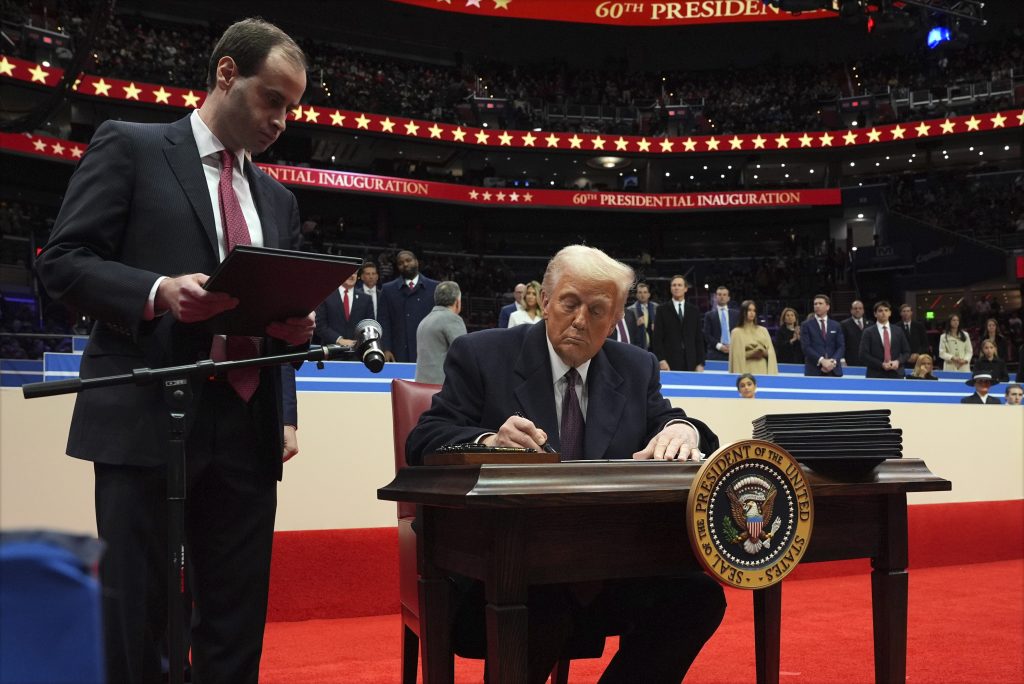Introduction
As the world prepares to implement the outcomes of COP29 that was conducted almost two months past in Baku, Azerbaijan, the United States of America’s second potential withdrawal from the Paris Agreement under President-elect H.E. Donald John Trump poses a significant threat to global climate action specifically in attaining the goals of climate finance. The ramifications of the shutdown from the giant will be particularly severe for climate finance mobilization, a crucial pillar agreed upon in Baku and for Africa as a continent highly vulnerable to climate change.
The US Withdrawal and Its Impact on Climate Finance Mobilization
The Paris Agreement established in 2015, which aims to keep global warming below 1.5°C, relies heavily on international cooperation and financial commitments to achieve its targets. A key outcome of COP29 was the reaffirmation of developed nations’ obligations to mobilize $100 billion annually in climate finance, alongside the establishment of a more ambitious post-2025 finance goal of which the USA was expected to play a lot in making mere imaginations a reality. As one of the largest historical emitters and a key contributor to global climate funds, the USA was to play a vital role in meeting these targets since it was running smoothly in the times of H.E. Joseph Robinette Biden, the 46th President of the USA.
Under Trump’s previous administration (2017–2021), the USA not only withdrew from the Paris Agreement but also refused to deliver its promised Nationally Determined Contributions (NDCs) and finance to the Green Climate Fund (GCF), a critical mechanism for supporting developing nations in climate mitigation and adaptation. If history repeats itself, Trump’s withdrawal could further destabilize climate finance, causing shortfalls in the already inadequate funding for developing nations to recover from the loss and damage caused by climate change.
This would directly and severely affect African nations, which rely on international climate finance to build resilience and adaption against climate change. Without the expected financial support, crucial projects such as renewable energy expansion, disaster preparedness and adaptation measures may stack, leaving millions at risk of impacts of climate change.
Africa’s Unfair Victimization of Climate Politics
Africa contributes less than 4 percent of global greenhouse gas emissions, yet it suffers disproportionately from climate change effects, including droughts, floods, desertification and rising sea levels. The continent has little historical responsibility for climate change but bears the brunt of its consequences which sounds inconsiderate to H.E. Trump. The success of the Paris Agreement’s implementation in Africa hinges on access to adequate financial and technological resources.
With the USA potentially withdrawing from the agreement, African nations may struggle to secure sufficient funding to implement NDCs. This will slow progress in transitioning to renewable energy, improving climate resilience in agriculture and addressing loss and damage from extreme weather events. Furthermore, private investors and multilateral banks often follow diplomatic signals from major economies like the USA and Russia. If Trump pulls out, it may weaken global confidence in climate finance mechanisms, further discouraging private-sector contributions to combat climate change which is even worse for Mother Africa.
Geopolitical and Diplomatic Fallout
Beyond finance, a USA withdrawal from the Paris Agreement under Trump would spread a dangerous signal to other nations, potentially leading to a domino effect of reduced commitments. Countries that were already reluctant to increase their climate ambitions such as China, India and some fossil-fuel-dependent economies may feel less compelled to uphold their financial commitments as the USA opposes the implementation of the agreement. This could undermine the progress made in COP29, including agreements on climate change adaptation funding for vulnerable nations.
Additionally, Africa has been advocating for climate justice, including reparations for historical emissions. A USA withdrawal would weaken Africa’s bargaining power in future climate negotiations, making it harder to hold high-emitting countries accountable as stated in the polluter pays principle and the Kyoto protocol.
The Future of Africa and the International Community
Despite the looming uncertainty, African nations and the global international community must take proactive steps to mitigate the fallout of a potential USA withdrawal by considering the following:
Strengthening Regional Climate Finance Mechanisms-African nations should work together to enhance regional climate funds, such as the African Development Bank’s (AfDB) Climate Action initiatives that have recently supported the African Energy Summit, to reduce dependence on the USA and other countries’ contributions of which their absence would impede the climate change mitigation programs.
Diversifying Funding Sources – Africa must attract alternative sources of climate finance from the European Union, China, Russia and private investors as main business partners of the continent. Enhancing cooperation with emerging economies could provide new opportunities to support each other in various spheres including climate financing.
Advocating for a Global Response – The African Union and other regional blocs should engage diplomatically to ensure that other developed nations step up their financial commitments, filling any gaps left by the USA to avoid any defect in the implementation of the climate fund mobilization as expected.
Enhancing Climate Governance – Building strong institutional capacity for climate governance at national and continental levels in Africa can help ensure that available funds are effectively utilized, maximizing impact despite potential shortfalls that would emerge at any time while undertaking climate change mitigation measures.
Conclusion
Trump’s withdrawal from the Paris Agreement would be a devastating setback for global climate efforts, especially in mobilizing the finance necessary for Africa’s climate resilience. However, Africa and the broader international community must not allow this to derail the progress made in COP29. By strengthening regional collaboration, seeking alternative funding sources and pushing for greater accountability from other developed nations, Africa can continue advancing its climate agenda despite the challenges ahead. The stakes are too high to let one nation’s retreat dictate the future of global climate action. The world must come together to ensure that Africa and the planet remain on the path toward a sustainable and resilient future.
Read more about Is Donald Trump and the Republicans racists?

